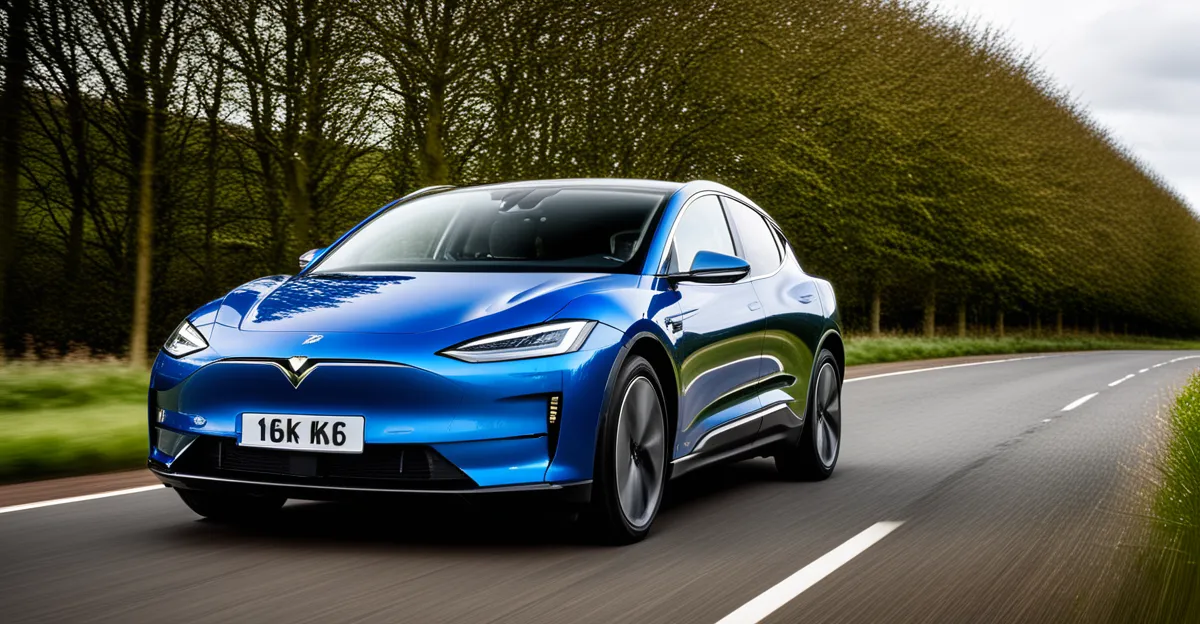Electric Vehicle Adoption Trends in the UK
Electric vehicle (EV) adoption in the UK has seen remarkable growth over recent years, driven by increasing consumer awareness and evolving automotive market trends. Sales figures highlight a consistent upward trajectory, with electric cars making up a growing share of new vehicle registrations annually. This surge reflects changing mobility needs, as more drivers seek environmentally friendly and cost-effective alternatives.
Certain demographics and regions play a key role in this expansion. Urban areas, especially major cities like London, experience higher EV uptake, fueled by better charging infrastructure and environmental concerns. Younger, tech-savvy consumers alongside environmentally conscious buyers are principal adopters, emphasizing shifting consumer preferences toward sustainable transport.
In the same genre : How Will the UK’s Automotive Industry Adapt to a Growing Demand for Electric Vehicles?
In terms of electric vehicle statistics, the UK’s automotive market trends indicate a savvy adaptation to cleaner technologies. Government initiatives complement this by reducing entry barriers for consumers, enabling further expansion. The integration of EVs into daily mobility depends heavily on these factors, making the adoption trend not just a product of regulation but a response to genuine consumer demand for innovation and sustainability.
Economic Implications for the UK Automotive Sector
Exploring investment shifts and trade dynamics.
Topic to read : How Are Technological Advances Shaping the Future of the UK Automotive Industry?
The UK automotive industry is undergoing significant transformation due to the rise of electric vehicles. A major economic impact lies in the reallocation of manufacturing investments. Traditional production lines are being revamped to focus on EV assembly and battery integration. This shift requires heavy capital investment but promises long-term gains in innovation and competitiveness.
Automotive exports and imports also face change. The UK is increasing its export of electric vehicle components while importing specialized battery technology. This adjustment affects trade balances and highlights the sector’s growing reliance on global supply chains.
Domestic supply chains and logistics evolve to support new demands. Component suppliers must align with EV-specific parts, such as electric drivetrains and high-capacity batteries. This transition creates opportunities for UK manufacturers but also risks delays if supply chain resilience is not secured.
Economic impact encompasses job shifts and investment patterns, positioning the UK automotive industry as a growing EV production hub. Strategic investment in these areas will underpin sustainable growth and industrial renewal amid the ongoing EV adoption wave.
Policy Landscape: Government Incentives and Regulation
The UK government EV policy plays a pivotal role in accelerating electric vehicle adoption. Key incentives include grants for purchasing EVs, reducing upfront costs for consumers and boosting demand. This direct financial support encourages more drivers to choose electric, aligning with overall UK EV adoption goals. Additionally, subsidies for installing home charging points expand charging accessibility.
Regulation is critical: the government has set a clear timeline for the phase-out of new petrol and diesel vehicles by 2030. This legal framework creates certainty for manufacturers and consumers, supporting long-term shifts towards EVs. Enforcement of stringent emissions standards throughout this transition further drives market adoption.
Infrastructure development is another cornerstone of government strategy. Public funding supports the rollout of extensive charging networks across urban and rural areas, addressing range anxiety—a major barrier in consumer adoption. Enhanced charging infrastructure ensures convenience and reliability, key factors for sustained growth in electric vehicle statistics.
Together, these policies and regulations form an integrated ecosystem that reduces barriers and facilitates the automotive market trends favoring electric vehicles. Their continued evolution will shape the pace and scale of the UK’s transition to sustainable transportation.
Industry Impact: Manufacturers and Supply Chain Adjustments
The transition to electric vehicles (EVs) demands rapid supply chain transformation for car manufacturers. Traditional assembly lines are reconfigured to integrate battery packs and electric drivetrains, requiring new manufacturing technologies. This shift challenges both established and emerging automotive suppliers, who must adapt components and materials to suit EV specifications.
Component suppliers face pressure to innovate while ensuring reliability and cost-effectiveness. For example, suppliers of combustion engine parts must pivot to producing battery modules or electric motors, altering production processes significantly. This demands investment in new machinery and skills, presenting initial hurdles but opening long-term growth avenues.
Collaboration between automakers and tech companies is increasing, combining automotive know-how with software expertise to enhance vehicle performance and connectivity. At the same time, competition is intensifying as global players race to capture market share in electric mobility.
In summary, the car manufacturers’ sector is evolving dynamically with both challenges and opportunities. Those who effectively manage supply chain changes and foster strategic partnerships will be better positioned to lead in the expanding EV market. This transformation is crucial for sustaining the UK’s relevance in the global automotive industry.
Workforce and Skills Transformation
Evolving roles and expertise in the electric vehicle sector.
The UK automotive jobs landscape is undergoing a significant transformation due to the rise of electric vehicles. Traditional roles focused on internal combustion engines are declining, while new positions centered around battery technology, software development, and electric drivetrain assembly are growing rapidly. This shift demands a skills transition to equip the workforce with the technical expertise necessary for EV production and maintenance.
Upskilling and reskilling initiatives are critical in addressing these evolving employment needs. Training programs tailored for existing workers help bridge knowledge gaps in electric powertrains and battery management systems. Moreover, educational institutions collaborate with industry stakeholders to deliver curriculum updates and apprenticeships aligned with the latest EV technologies.
Regional employment impacts vary. Areas with strong automotive manufacturing hubs, such as the Midlands and the North East, are seeing increased demand for skilled workers in EV-related roles, offering new opportunities amid the sector’s transformation. Conversely, regions reliant on traditional vehicle production face challenges in workforce reallocation.
Overall, sustaining the UK’s competitiveness in the employment in EV sector depends on proactive measures to develop workforce capabilities, ensuring a smooth and inclusive transition as the industry adapts to new technologies.
Environmental Impact and Sustainability Outcomes
Small text here
The shift to electric vehicles (EVs) in the UK contributes significantly to emissions reduction and improved sustainability in automotive practices. EVs produce zero tailpipe emissions, drastically cutting urban air pollution and greenhouse gas levels compared to traditional combustion engines. This benefit is crucial in aligning with the UK’s national climate targets and international commitments.
However, the environmental impact extends beyond vehicle use. Lifecycle assessments highlight key considerations in battery production, including the sourcing of raw materials like lithium and cobalt. Responsible extraction practices and recycling technologies are essential to mitigate ecological harm. Battery recycling not only reduces waste but also supports sustainable resource management by reclaiming valuable materials.
Sustainability also demands addressing the energy mix used for charging. Increasing reliance on renewable electricity enhances the environmental performance of EVs, further reducing their carbon footprint.
Overall, the environmental benefits of EV adoption encompass direct emissions cuts and broader sustainable practices in production and disposal. This holistic approach is critical to ensuring that the UK EV adoption wave translates into long-term ecological gains and a healthier future.
Barriers, Challenges, and Opportunities for Stakeholders
Navigating the UK’s electric vehicle adoption comes with notable challenges. One primary barrier is infrastructure limitations. Although strides are made in expanding charging networks, inconsistent coverage—particularly in rural areas—fuels consumer hesitancy. Range anxiety remains a critical factor holding back some potential buyers.
Supply chain risks also loom large. The sector’s heavy dependence on raw materials like lithium and cobalt exposes manufacturers to volatility in sourcing and prices. Battery production bottlenecks can disrupt supply, delaying EV availability and impacting automotive market trends.
Despite these obstacles, clear opportunities exist for stakeholders willing to innovate. Investment in domestic battery production and advanced recycling can reduce supply chain risks and promote sustainability. Furthermore, emerging technologies—such as solid-state batteries and smart charging—offer pathways to enhance vehicle performance and user experience.
Addressing industry challenges requires coordinated efforts across manufacturers, policymakers, and suppliers to overcome current barriers. By seizing these opportunities, the UK can strengthen its position in the global EV market and accelerate UK EV adoption with lasting benefits for consumers and the environment.







